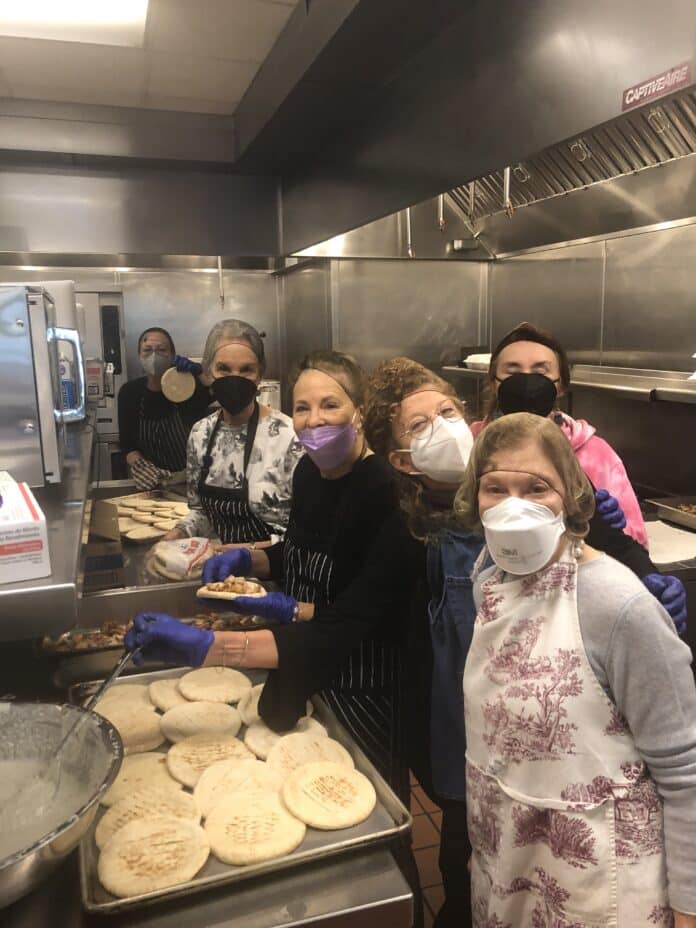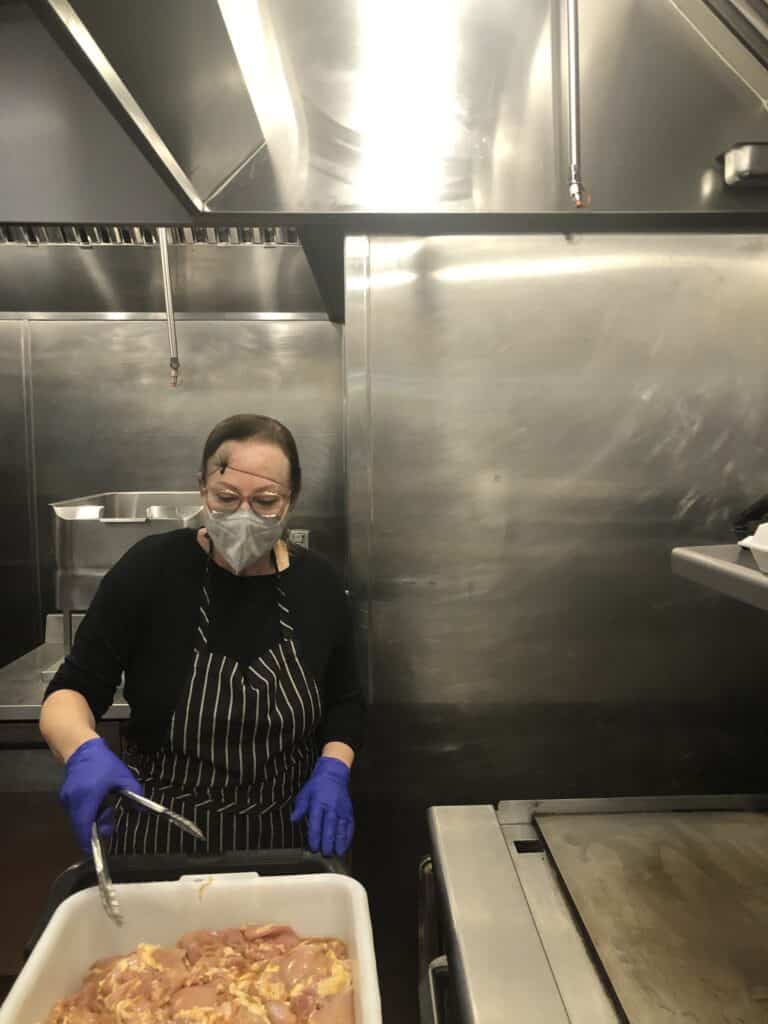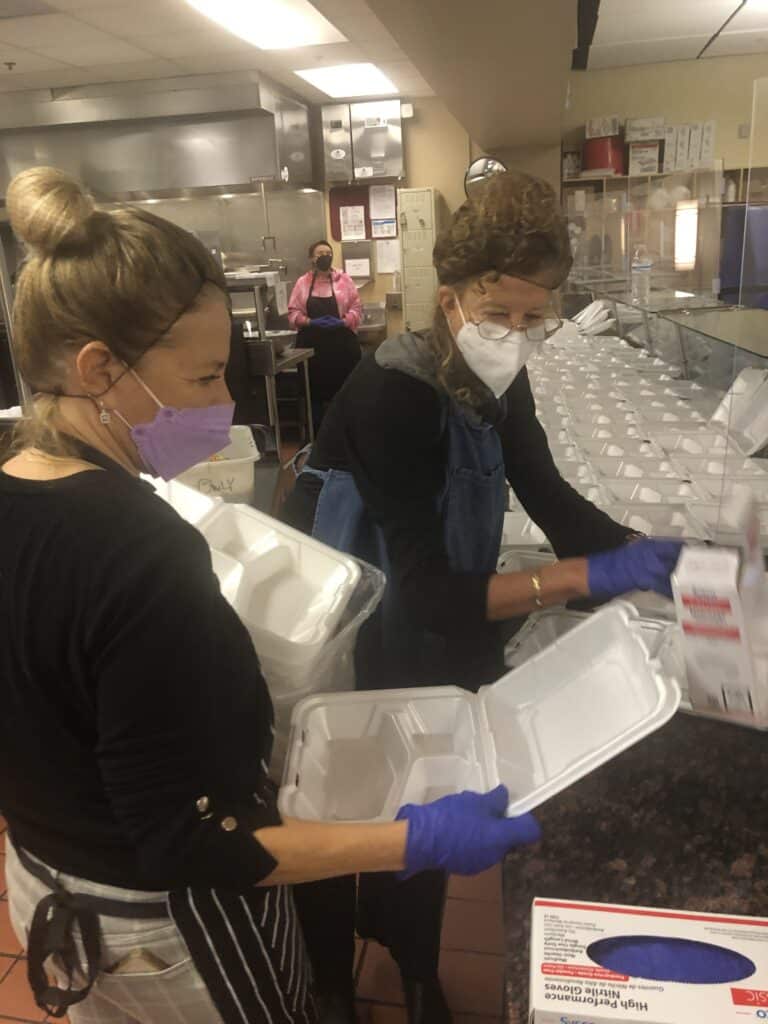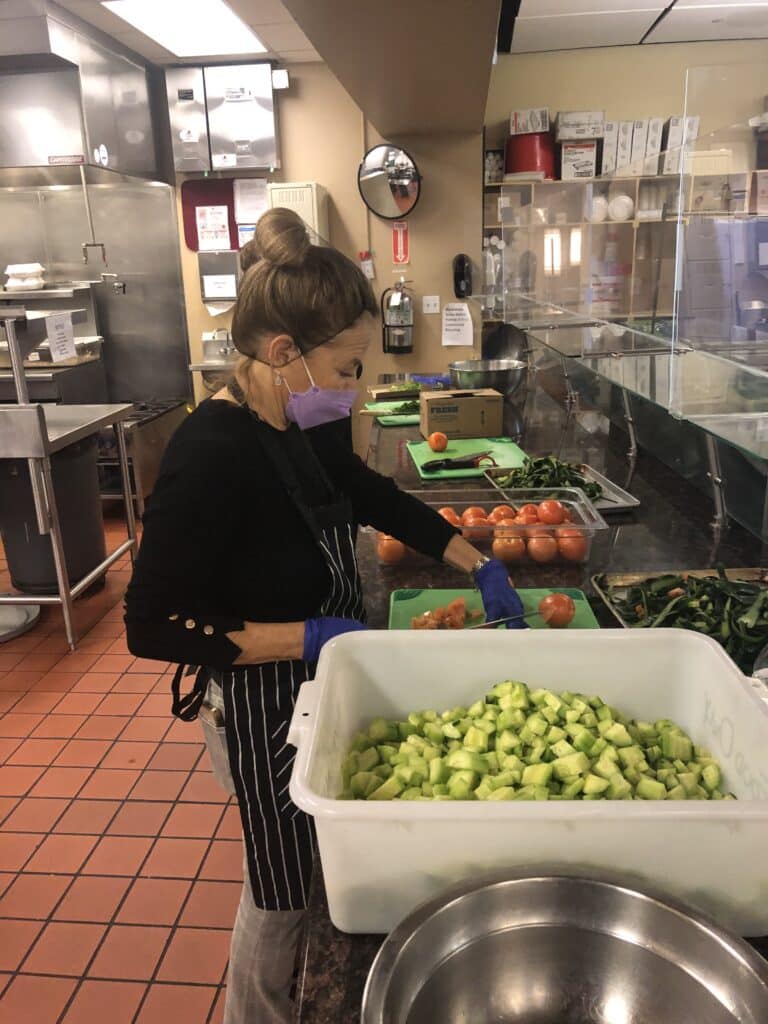
Just 25 miles from Malibu is Los Angeles’ Skid Row, the largest and densest unhoused community in the country. It’s estimated that 9,000 to 15,000 residents are crammed into just 50 square blocks; so close geographically and in population to tony Malibu, yet worlds away.
Adding to the unfortunate circumstances to this vulnerable community, there is a disproportionate impact on women. In the past decade, there has been a roughly 41 percent increase in homeless women. The Sisterhood women’s group at the Malibu Jewish Center and Synagogue has been donating money, clothes, and other material goods to women’s shelters in downtown Los Angeles for decades, but this past week a group of women from MJCS traveled to downtown to volunteer in person to make and serve lunch for the residents of LA’s Downtown Women’s Center (DWC).
The DWC was started when a local woman was saving money for her own “dream house.” When the woman started noticing so many homeless people in Los Angeles she was inspired to scrap her plans and build a shelter for unhoused women.
“We’re Sisterhood,” the group’s president Lori Gray explained of their motto. “SOS. Sisterhood, Outreach, Support. For years we’ve been supporting downtown women with clothing drives for the Weingart Center and the DWC, but it’s a whole different thing when you get your hands in the soil for us to come down here. Without a doubt the most rewarding part of the experience was for us. We got an eyelash into what’s going on. These are women and this is their life. The women we made lunch for, many of them are totally unhoused. It was an extraordinary way to give back and to walk these streets and interact.”



The MJCS Sisterhood raised $1,000 for the DWC. Part of the money was used to cover the cost of the food, which typically runs $500 for just one meal. Six Malibu women then worked with the center’s chef to prepare and then serve the meal, a Greek-style lunch, to 120 women. They got on the road early, leaving Malibu at 7 a.m. and arriving at 8:30, and then cooked chicken, chopped vegetables, and mixed salads for more than three hours to get the meal ready for the DWC’s lunchtime crowd. The Malibu group worked under the center’s guidelines to keep everything in the kitchen clean and sanitary. They also needed to provide proof of vaccinations and wear PPE, including hair nets in the kitchen.
“It was an honor, our honor for us to do that,” Gray commented.
One of the volunteers, Betsy Rosen, said, “People seemed very happy. The workers were happy and invested and thanked everybody. They were kind human beings. It was a very positive experience.”
“There was a quote in the kitchen that said, ‘Work hard until you’re proud,’” one of the volunteers recalled.
Volunteer Jill Greenberg, who lost her home in the Woolsey Fire, said what touched her was, “the story of how it began with one person. One person wanted to help the homeless community in the 1970s. She met a homeless person, and they became friends, and they started out small and they did it little by little, and it’s grown to be such an amazing organization. It shows how just one person can change the world.”
“We live in Malibu and we’re so grateful,” Gray said, “but what can you do in the face of such abject suffering and sorrow sometimes is the only thing you can do, is open your heart with a simple act.
“We do all sorts of things through Sisterhood, including volunteer work, social activism, we have a great book club, we learn about our heritage; there’s lots going on. I would encourage anyone who’s interested in our community to show up and reach out at MJCS.”
The DWC relies on volunteer organizations to help the extremely low-income and homeless women they serve with food, healthcare, clothing, and shelter. There is limited availability for some women to live at the DWC, including transgender women and the DWC is an active supporter of creating low-income housing for Los Angeles’ most vulnerable populations.
All the women from the MJCS Sisterhood group say they plan on returning to volunteer again.
To make a donation or volunteer please visit downtownwomenscenter.org.

